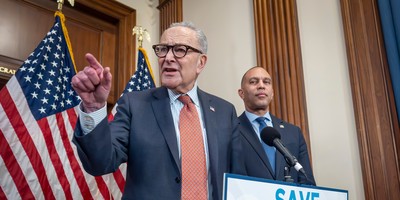In late 1620, Pilgrims aboard the Mayflower reached the New World to found what would become Plymouth Colony. Governed by the Mayflower Compact—the representative government established through it—they thanked God for their safe voyage and disembarked the vessel with a cold winter before them.
The winter of 1620-1621 was a brutal one for the Pilgrims. Almost half of the Pilgrims died from disease so that by winter’s end, there were just over 50 left to keep the colony viable. When the “first Thanksgiving” was celebrated after harvest time in November of 1621, the survivors were grateful for life and limb, and for the bare necessities that God and provided to keep them from perishing.
Plymouth was an experiment, inasmuch as it was communal in its social structure. Although the Mayflower Compact had put a representative government in place, that government had been fashioned so as to recognize that everyone held everything within the colony in common.
Therefore, this communal experiment, which lasted from 1621 to 1623, represented difficult years for the colony because it sucked the creativity and desire to prosper out of both the most gifted and physically fit Pilgrims.
In this instance, community of property…was found to breed much confusion and discontent, and retard much employment which would have been to the general benefit and comfort. For the young men who were most able and fit for service objected to being forced to spend their time and strength in working for other men’s wives and children, without any recompense.
So while both of the first Thanksgivings—1621 and 1622—were gatherings at which the Pilgrims were simply happy to be alive, a strange thing happened on the way to the Thanksgiving in 1623. Namely, Gov. William Bradford saw fit to move the colony from the communal system of ownership to a system of private enterprise.
Recommended
According to Bradford:
The failure of this experiment of communal service, which tried for several years, and by good and honest men proves the emptiness of the theory of Plato and other ancients, applauded by some of later times—that the taking away of private property, and the possession of it in community, by commonwealth, would make a state happy and flourishing; as if they were wiser than God.
After Plymouth was privatized, with men owning land and making profits for themselves, Bradford wrote that they went from a scarcity of food of growing more corn than they could eat.
In other words, they went from minimal food supplies to an abundance of the same. And when they gathered for Thanksgiving in 1623, they did so with the knowledge that God had blessed them beyond measure.
Thus days of fasting and prayer marked portions of the Thanksgiving celebration of 1623. And it continued in this way until growing broader with President George Washington’s proclamation in 1789 and finally President Abraham Lincoln’s recognition of it as an official holiday in 1863.
Washington’s proclamation is timely for us still:
Whereas it is the duty of all nations to acknowledge the providence of Almighty God, to obey His will, to be grateful for His benefits, and humbly to implore His protection and favor. . . . Now, therefore, I do appoint Thursday, the 26th day of November 1789 . . . that we may all unite to render unto Him our sincere and humble thanks for His kind care and protection.
So as we approach Thanksgiving, we must remember that we do so as a nation rich with history surrounding this holiday. And when we sit round our tables full of plenty, especially in these trying economic times, we ought to bow our heads and hearts to God as did colonial Americans and American statesmen gone before us.
Truly, we are fortunate to live here, and not in some communist regime where our land is not our own. And surely we are blessed to have our daily bread…and some Turkey and dressing, too.
























Join the conversation as a VIP Member